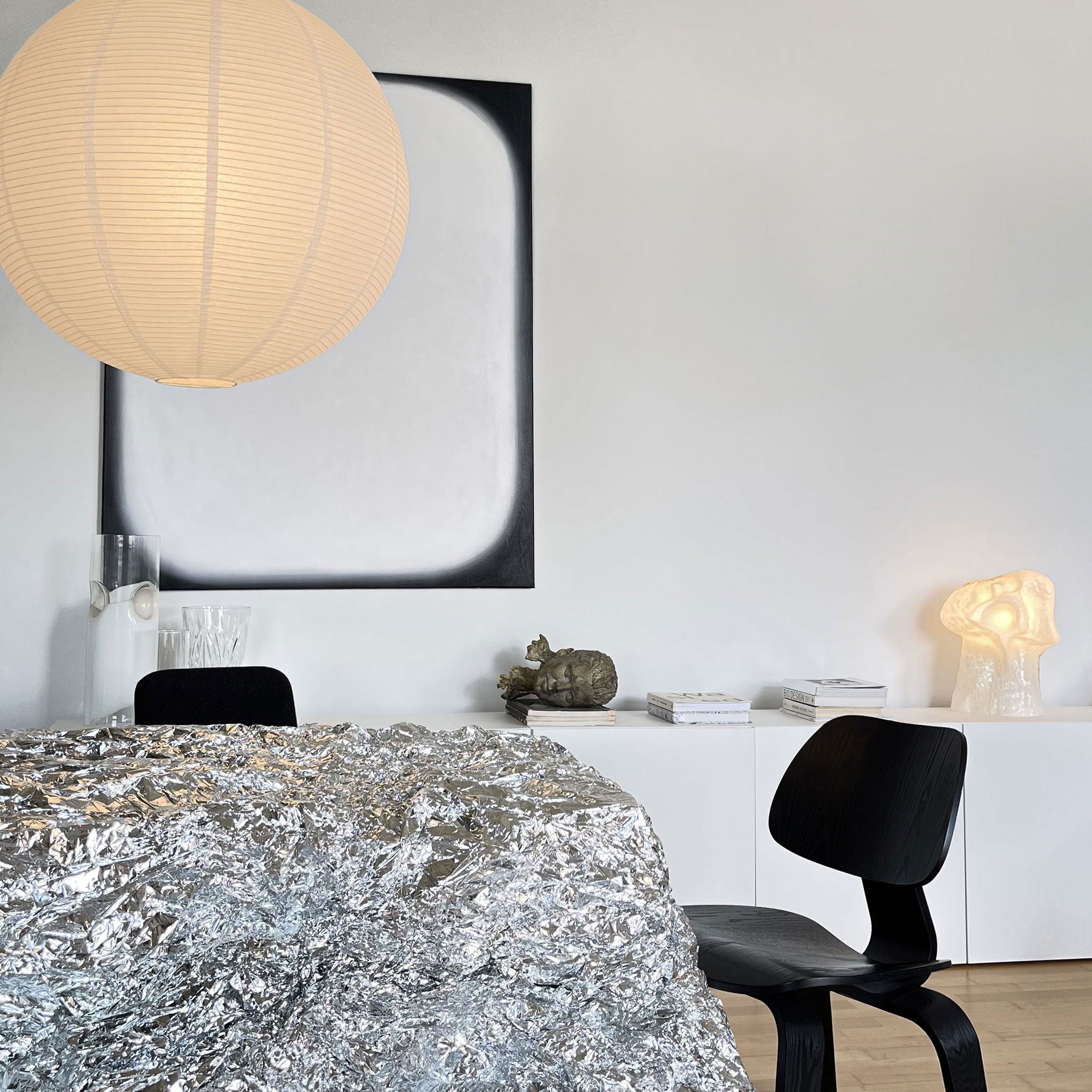Plywood Chair (LCW) by Charles & Ray Eames, 1960s.
A gesture in plywood — quiet, sculptural, precise.
In the 1940s, Charles and Ray Eames developed a revolutionary technique: bending wood into organic, ergonomic forms. This chair is the result — a seat that embraces the body with precision, not posture.
The black finish accentuates its silhouette — each curve deliberate, each joint seamless. Structure becomes softness, engineering becomes empathy. It’s a chair that doesn’t impose, but invites — light on its feet, grounded in purpose.
More than a seat, it’s a manifesto: of modernity, material intelligence, and comfort as a serious design principle.
RARE. curates this piece as part of a living archive — where design history meets the present, and form continues to follow feeling.
OBJECT SPECIFICATIONS
PRODUCT: Plywood Chair (LCW)
DESIGNER: Charles & Ray Eames
MANUFACTURER: Herman Miller
ORIGIN: United States
PERIOD: 1950s–1960s
STYLE: Mid-Century Modern
MATERIAL & TECHNIQUE: Molded plywood with black lacquer finish
COLOR: Deep black
TEXTURE: Matte, smooth with visible grain
CONDITION: Excellent condition
DIMENSIONS: H 68 cm × W 56 cm × D 63 cm — H Seat: 38 cm

Charles & Ray Eames
Charles (1907–1978) and Ray Eames (1912–1988) stand among the most influential designers of the 20th century — visionaries who transformed modern living through form, function, and play. Their work defined an era and continues to inform how we think about design today.
In the 1940s, amid wartime constraints and technological exploration, the duo pioneered a method that fused innovation with empathy: molded plywood, sculpted through pressure, heat, and grace.
Their iconic creations are not static forms but dynamic anatomies. Each curve is calculated not for style, but for sensation. Material, once rigid and industrial, becomes supple and sensuous — a medium capable of embracing the human form without excess or ornament.
In their hands, design becomes an act of care. Their pieces do not follow trends; they transcend them. They are micro-architectures — democratic, functional, and deeply human.
